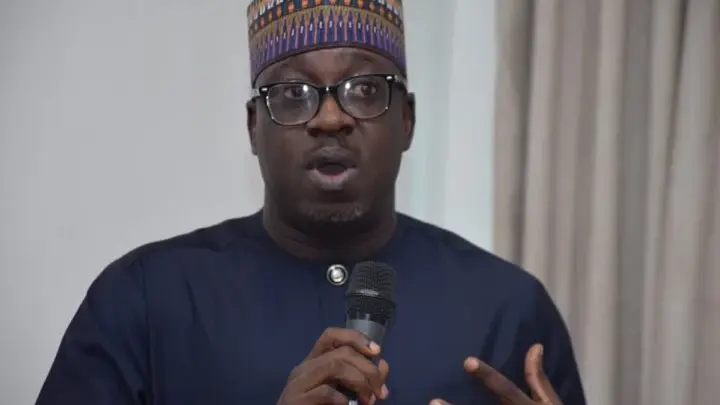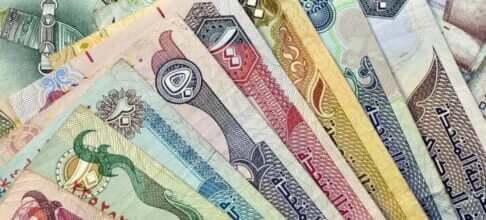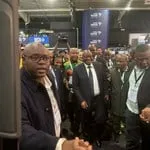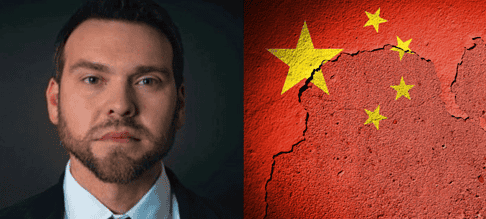• Nigeria needs good president, not southern, northern leader, says Hashim
• Northern group plots counter-strategy as Yilwatda emerges APC chairman The African Democratic Congress (ADC) has accused President Bola Tinubu and the ruling All Progressives Congress (APC) of displaying intolerance towards opposition parties, saying the APC appears unsettled by the ADC’s growing influence. The accusation followed President Tinubu’s remarks at the APC’s National Executive Committee (NEC) meeting yesterday, where he described the opposition coalition led by the ADC as a “coalition of confusion”. Reacting, the ADC’s Interim National Publicity Secretary, Bolaji Abdullahi, said the President’s comments revealed the ruling party’s unease with the ADC’s rising political momentum. “What exactly is there to address? How can the president of a democratic country speak of the opposition in such a way? It says a lot,” Abdullahi said. President Tinubu, during his address at the NEC meeting, appeared to take a swipe at the ADC, which has recently attracted the backing of prominent opposition figures such as former Vice President Atiku Abubakar and Labour Party’s Peter Obi. “It’s not a bad idea to abandon a sinking ship and be absent from a coalition of confusion,” Tinubu said, a statement widely interpreted as an effort to discredit opposition unity and encourage defections to the APC. In response, Abdullahi maintained that the APC’s rhetoric reflected an inability to tolerate genuine opposition. “This kind of language shows the APC’s clear intolerance for any opposition. They are unsettled, even angry, about the ADC’s rise, a party determined to stop their mission of turning Nigeria into a one-party state,” he said. He added that the APC had become accustomed to operating unchallenged, taking advantage of a previously weak opposition. Similarly, the Conference of United Political Parties (CUPP) responded, saying Tinubu’s remarks betrayed anxiety within the presidency and the APC ahead of the 2027 general elections. Speaking in Abuja, CUPP National Secretary, Peter Ameh, described the President’s comment as “a sign of political anxiety masked as confidence”. “In a recent statement, Mr President attempted to project confidence in response to the growing coalition of opposition forces,” Ameh said. “However, his remarks reveal a leader unsettled by the unified front challenging his administration. The opposition remains steadfast, and the President’s superficial display of strength should not be taken seriously.” He dismissed recent defections to the APC as politically insignificant, saying, “Those switching sides lack significant political value, having relied on the influence of opposition leaders to secure their own elections. They bring no advantage to bolster the President’s reelection bid.” Ameh also accused the Tinubu administration of worsening economic hardship, warning that this could undermine the APC’s chances at the next polls. “As the 2027 elections approach, it is clear that the President stands on sinking ground, unable to escape the imminent defeat that awaits him due to his poor handling of the economy,” he said. He urged the APC to learn from the downfall of the former ruling Peoples Democratic Party, which he said underestimated the opposition alliance in 2013–2014 — a coalition that eventually unseated President Goodluck Jonathan. THIS came as a former presidential candidate, Dr Gbenga Olawepo-Hashim, said Nigeria’s future depends not on regional calculations or ethnic alliances, but on the emergence of a competent, patriotic, and visionary president who can tackle insecurity, create jobs, and improve the living conditions of all citizens. He said this while weighing in on what seems to be a coordinated campaign by some politicians for a president of southern extraction in the 2027 election. In a statement, Olawepo-Hashim condemned what he described as the “continuous manipulation of religion and ethnicity by corrupt political opportunists” who have failed to deliver real development to Nigerians. “Nigeria does not need a southern or northern president. What our country urgently needs is a good president—one with the capacity to secure the nation, revive the economy, and restore hope among our people,” Hashim stated. He noted that recent political trends and past elections have shown that Nigerians are capable of making decisions based on competence rather than tribal or religious sentiments, citing examples from Lagos, Kano, and Gboko constituencies. “In the 1993 election, Kano people rejected their own son, Bashir Tofa, in favour of Chief M.K.O. Abiola from Ogun State. In more recent times, voters in Lagos rejected the incumbent president for a candidate from another region. In Gboko, a largely Tiv and Christian constituency, a Kanuri Muslim, Kashim, was elected into the Northern Regional Assembly in the First Republic. These are testaments to our national maturity,” he said. Olawepo-Hashim accused politicians who promote regional presidents of pursuing selfish interests rather than national unity. “Those advocating for a southern or northern presidency are not doing so for the people but for their own stomachs. Nigerians are not interested in such games anymore. They want leaders who can work—not leaders who merely belong to their region or faith,” he declared. Calling on all political parties to adopt credibility, competence, and character as the sole criteria for fielding candidates in the 2027 elections, he emphasised that the survival of the country is now at stake. “The time for political shenanigans is over. Our future cannot be mortgaged to merchants of ethnicity and religious manipulation. Nigerians deserve a decent country managed by decent people,” he added. Olawepo-Hashim reaffirmed his commitment to building a united, secure, and prosperous Nigeria and urged citizens across all regions and faiths to join hands in rejecting divisive politics. Northern group plots counter-strategy
MEANWHILE, barely 12 hours after the current Minister for Humanitarian Affairs, Prof Nentawe Goshwe Yilwatda, was mentioned as a replacement for Dr Abdullahi Umar Ganduje as National Chairman of the ruling All Progressives Congress, the National Political Consultative Group (North) has scheduled a meeting for tomorrow to develop counter-strategies. Sources revealed that President Bola Tinubu considered the Plateau State-born minister for the party’s top job in what was believed to be an effort to achieve religious balance. The President was said to be intensifying efforts to address the growing influence of northern politicians who oppose his likely re-election over concerns about religious and zonal imbalance, skewed federal appointments, and perceived underperformance. Findings by The Guardian indicate that the planned NPCG meeting is aimed at reviewing the implications of the APC’s revised zoning formula and devising strategies to ensure the North approaches the 2027 elections as a united bloc. According to a memo from the group’s secretariat, titled “Re: Third Expanded Meeting of National Political Consultative Group (North),” the gathering will also receive feedback on ongoing efforts to domesticate the African Democratic Congress as the coalition’s political platform. The National Political Consultative Group (North), formed to unify the region’s political stakeholders and act as a consolidated interest bloc within the ADC, was previously known as the Northern Political Consultative Group before being rebranded. The memo, sighted by The Guardian, listed part of the agenda as a “review of some of the challenges of party building in the northern region, reports and proposals of way forward that will shape and reorganize politics in the country and the entire north are expected to be deliberated upon.” Part of the letter read: “With the successful unveiling of the African Democratic Congress as the political platform for the coalition for the 2027 elections, the third expanded meeting of the NPCG (North) is convened to facilitate consultations towards achieving the objective of uniting our people in the North. “The third meeting will receive feedback on how initiatives are being taken to domesticate the coalition at the state level. “Each state will nominate two leaders who will speak at the meeting on behalf of the delegates from the state. Additionally, 50 delegates will represent each state.” Although attendance is limited to invitees only, the NPCG noted that all further enquiries should be directed to the secretariat through the designated state contact leaders. A former senator who spoke to The Guardian on condition of anonymity said the invitation was electronically signed to avoid exposing key organisers. He explained: “The focus on uniting the northern politicians is a strategy that will be replicated in the South, especially the South-East region.” He added, “As you can see, the venue of the meeting is Abuja Continental Hotel, formerly Sheraton Hotel, Abuja, but with the experience of what transpired the last time the ADC leaders were unveiled, invited attendees will be informed of any change of venue.
• Northern group plots counter-strategy as Yilwatda emerges APC chairman The African Democratic Congress (ADC) has accused President Bola Tinubu and the ruling All Progressives Congress (APC) of displaying intolerance towards opposition parties, saying the APC appears unsettled by the ADC’s growing influence. The accusation followed President Tinubu’s remarks at the APC’s National Executive Committee (NEC) meeting yesterday, where he described the opposition coalition led by the ADC as a “coalition of confusion”. Reacting, the ADC’s Interim National Publicity Secretary, Bolaji Abdullahi, said the President’s comments revealed the ruling party’s unease with the ADC’s rising political momentum. “What exactly is there to address? How can the president of a democratic country speak of the opposition in such a way? It says a lot,” Abdullahi said. President Tinubu, during his address at the NEC meeting, appeared to take a swipe at the ADC, which has recently attracted the backing of prominent opposition figures such as former Vice President Atiku Abubakar and Labour Party’s Peter Obi. “It’s not a bad idea to abandon a sinking ship and be absent from a coalition of confusion,” Tinubu said, a statement widely interpreted as an effort to discredit opposition unity and encourage defections to the APC. In response, Abdullahi maintained that the APC’s rhetoric reflected an inability to tolerate genuine opposition. “This kind of language shows the APC’s clear intolerance for any opposition. They are unsettled, even angry, about the ADC’s rise, a party determined to stop their mission of turning Nigeria into a one-party state,” he said. He added that the APC had become accustomed to operating unchallenged, taking advantage of a previously weak opposition. Similarly, the Conference of United Political Parties (CUPP) responded, saying Tinubu’s remarks betrayed anxiety within the presidency and the APC ahead of the 2027 general elections. Speaking in Abuja, CUPP National Secretary, Peter Ameh, described the President’s comment as “a sign of political anxiety masked as confidence”. “In a recent statement, Mr President attempted to project confidence in response to the growing coalition of opposition forces,” Ameh said. “However, his remarks reveal a leader unsettled by the unified front challenging his administration. The opposition remains steadfast, and the President’s superficial display of strength should not be taken seriously.” He dismissed recent defections to the APC as politically insignificant, saying, “Those switching sides lack significant political value, having relied on the influence of opposition leaders to secure their own elections. They bring no advantage to bolster the President’s reelection bid.” Ameh also accused the Tinubu administration of worsening economic hardship, warning that this could undermine the APC’s chances at the next polls. “As the 2027 elections approach, it is clear that the President stands on sinking ground, unable to escape the imminent defeat that awaits him due to his poor handling of the economy,” he said. He urged the APC to learn from the downfall of the former ruling Peoples Democratic Party, which he said underestimated the opposition alliance in 2013–2014 — a coalition that eventually unseated President Goodluck Jonathan. THIS came as a former presidential candidate, Dr Gbenga Olawepo-Hashim, said Nigeria’s future depends not on regional calculations or ethnic alliances, but on the emergence of a competent, patriotic, and visionary president who can tackle insecurity, create jobs, and improve the living conditions of all citizens. He said this while weighing in on what seems to be a coordinated campaign by some politicians for a president of southern extraction in the 2027 election. In a statement, Olawepo-Hashim condemned what he described as the “continuous manipulation of religion and ethnicity by corrupt political opportunists” who have failed to deliver real development to Nigerians. “Nigeria does not need a southern or northern president. What our country urgently needs is a good president—one with the capacity to secure the nation, revive the economy, and restore hope among our people,” Hashim stated. He noted that recent political trends and past elections have shown that Nigerians are capable of making decisions based on competence rather than tribal or religious sentiments, citing examples from Lagos, Kano, and Gboko constituencies. “In the 1993 election, Kano people rejected their own son, Bashir Tofa, in favour of Chief M.K.O. Abiola from Ogun State. In more recent times, voters in Lagos rejected the incumbent president for a candidate from another region. In Gboko, a largely Tiv and Christian constituency, a Kanuri Muslim, Kashim, was elected into the Northern Regional Assembly in the First Republic. These are testaments to our national maturity,” he said. Olawepo-Hashim accused politicians who promote regional presidents of pursuing selfish interests rather than national unity. “Those advocating for a southern or northern presidency are not doing so for the people but for their own stomachs. Nigerians are not interested in such games anymore. They want leaders who can work—not leaders who merely belong to their region or faith,” he declared. Calling on all political parties to adopt credibility, competence, and character as the sole criteria for fielding candidates in the 2027 elections, he emphasised that the survival of the country is now at stake. “The time for political shenanigans is over. Our future cannot be mortgaged to merchants of ethnicity and religious manipulation. Nigerians deserve a decent country managed by decent people,” he added. Olawepo-Hashim reaffirmed his commitment to building a united, secure, and prosperous Nigeria and urged citizens across all regions and faiths to join hands in rejecting divisive politics. Northern group plots counter-strategy
MEANWHILE, barely 12 hours after the current Minister for Humanitarian Affairs, Prof Nentawe Goshwe Yilwatda, was mentioned as a replacement for Dr Abdullahi Umar Ganduje as National Chairman of the ruling All Progressives Congress, the National Political Consultative Group (North) has scheduled a meeting for tomorrow to develop counter-strategies. Sources revealed that President Bola Tinubu considered the Plateau State-born minister for the party’s top job in what was believed to be an effort to achieve religious balance. The President was said to be intensifying efforts to address the growing influence of northern politicians who oppose his likely re-election over concerns about religious and zonal imbalance, skewed federal appointments, and perceived underperformance. Findings by The Guardian indicate that the planned NPCG meeting is aimed at reviewing the implications of the APC’s revised zoning formula and devising strategies to ensure the North approaches the 2027 elections as a united bloc. According to a memo from the group’s secretariat, titled “Re: Third Expanded Meeting of National Political Consultative Group (North),” the gathering will also receive feedback on ongoing efforts to domesticate the African Democratic Congress as the coalition’s political platform. The National Political Consultative Group (North), formed to unify the region’s political stakeholders and act as a consolidated interest bloc within the ADC, was previously known as the Northern Political Consultative Group before being rebranded. The memo, sighted by The Guardian, listed part of the agenda as a “review of some of the challenges of party building in the northern region, reports and proposals of way forward that will shape and reorganize politics in the country and the entire north are expected to be deliberated upon.” Part of the letter read: “With the successful unveiling of the African Democratic Congress as the political platform for the coalition for the 2027 elections, the third expanded meeting of the NPCG (North) is convened to facilitate consultations towards achieving the objective of uniting our people in the North. “The third meeting will receive feedback on how initiatives are being taken to domesticate the coalition at the state level. “Each state will nominate two leaders who will speak at the meeting on behalf of the delegates from the state. Additionally, 50 delegates will represent each state.” Although attendance is limited to invitees only, the NPCG noted that all further enquiries should be directed to the secretariat through the designated state contact leaders. A former senator who spoke to The Guardian on condition of anonymity said the invitation was electronically signed to avoid exposing key organisers. He explained: “The focus on uniting the northern politicians is a strategy that will be replicated in the South, especially the South-East region.” He added, “As you can see, the venue of the meeting is Abuja Continental Hotel, formerly Sheraton Hotel, Abuja, but with the experience of what transpired the last time the ADC leaders were unveiled, invited attendees will be informed of any change of venue.
“Upon confirmation of attendance, accreditation cards will be made available to all confirmed persons at the venue of the meeting. Accreditation will commence 11 a.m. on that date. No one will be admitted into the meeting hall without being accredited.”














